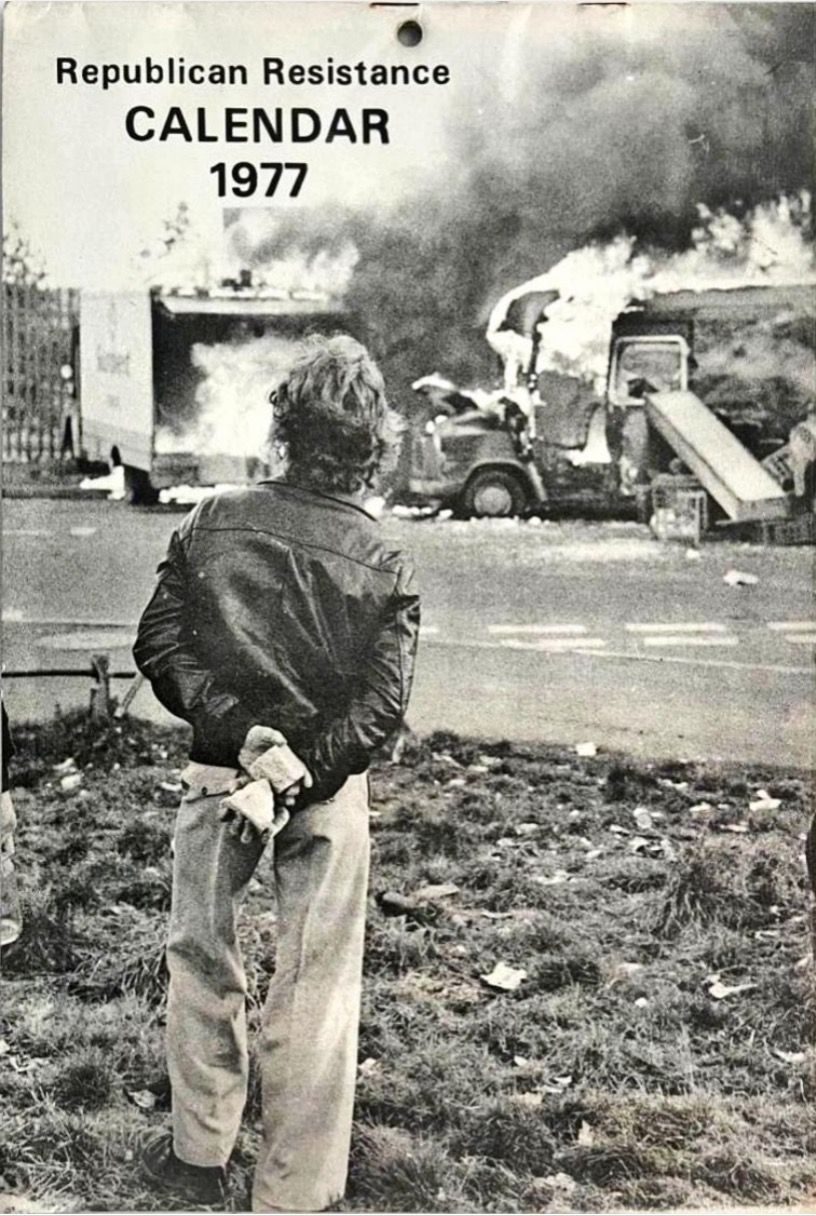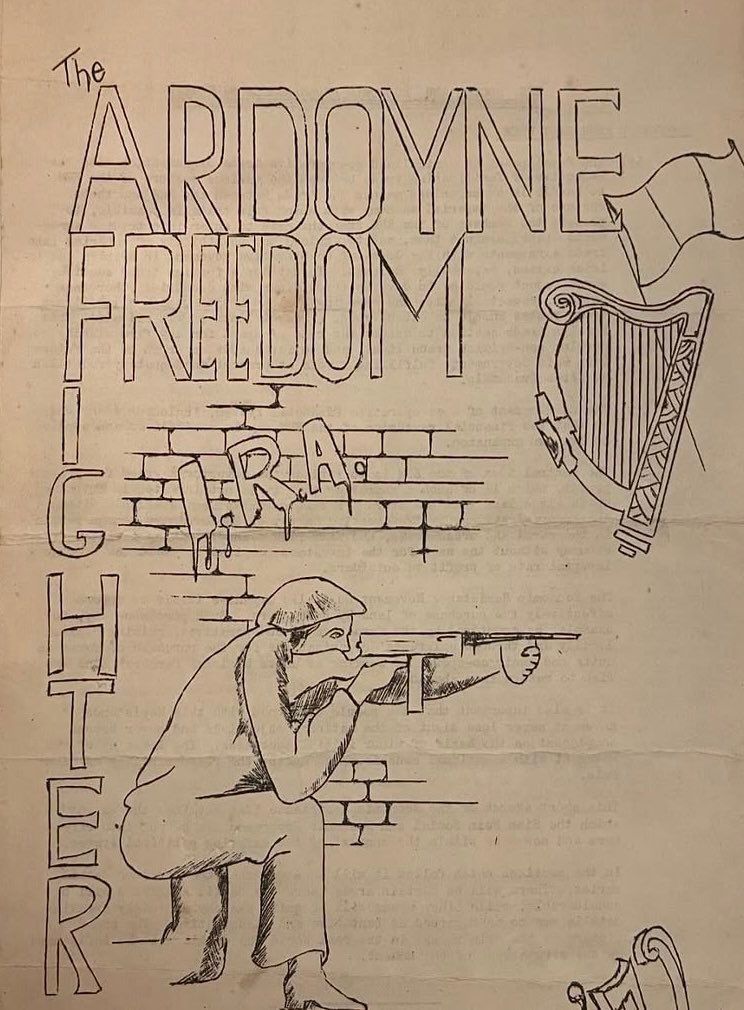A group of amateur archivists have come together to found a project aimed at collating and preserving the varied literary and visual output of the Irish Republican movement, illuminating its role in shaping modern Ireland. They are now appealing to the public, particularly residents of West Belfast and other republican communities of the Six Counties, for their help in growing the initiative.
The Irish Republican Digital Archive, founded last year by a group of historically-minded colleagues from around Ireland, catalogues the ebb and flow of republicanism in the modern era, since the 1950s and the order to "dump arms" following the failed Border Campaign, until today, with Sinn Féin the largest party in Ireland and poised to take government in the South.

Modelled on similar online archive initiatives covering the Irish political scene, such The Irish Left Archive and the Irish Election Literature blog, the project aims to build a repository of the modern Irish Republican movement, encompassing newspapers, posters, photographs, calendars, books, pamphlets, and other documents and ephemera produced by the various organs and wings of the republican movement. Organisations covered include the original pre-Troubles IRA and Sinn Féin, the Provisional IRA, the Workers Party, the IRSP, Republican Sinn Féin, and other smaller groups.
It's not necessary, however, to be a trainspotting devotee of the minutiae of republican splits and micro-groups in order to appreciate the stunning range and striking visual quality of the material uploaded to the archive, which even the most casual follower of Irish political life can enjoyably peruse. Colourful agit-prop posters take centre stage, alongside pamphlets and periodicals explaining the means and aims of their respective publishers, including prison journals issued illicitly behind bars. Entire rare books that are out of copyright have been uploaded to the archive, including memoirs of the 1798 United Irish uprising.
BORDER CAMPAIGN
It's no wonder then that the project's Instagram page and newsletter has already attracted several thousand followers with its eye-catching graphics, covering important historical events such as the Border Campaign, the sectarian violence of 1969 and the Provisional/Official Split, the IRA offensive of the early 1970s that led to the collapse of Stormont, the Hunger Strikes of the early 1980s, the 1986 Sinn Féin split regarding abstention at Leinster House, as well as the recent era of the peace process and beyond.
Project co-founder Alan Mac Fhíobhuí says the republican community has responded positively to the project.
"The archive was founded in 2024 with the aim of digitising Irish Republican documents and making them easily accessible to republicans, students, historians, and anyone with a passing interest in the subject. The project began almost by accident - I initially scanned a few newspapers from my collection and uploaded them online. The response was overwhelmingly positive, which encouraged me to upload more. The original plan was to scan around 50 papers, but as people began reaching out with their own contributions, the project quickly grew."
Today, the archive holds approximately 1,200 documents from over 15 contributors, covering republicanism from the 1940s onward, with the majority from the 1970s and 1980s.
To those wary of a sectarian or party-political angle being pursued, Alan reassures that the project is, "first and foremost a non-partisan historical project, which maintains a neutral stance on all issues covered within the documents. Our goal is not to push a particular viewpoint but to provide open access to primary source materials so that people can engage with them and form their own judgments."
He adds: "Our motivation is simple: these documents are an important part of Irish Republican history, and many are at risk of being lost forever due to their age and increasing scarcity. By digitising and freely sharing them, we ensure that the stories, images, and perspectives they contain remain accessible for future generations."
The project is a collaborative one, with donations solicited from members of the public. An array of contributors and donators of material are credited on its homepage, including its founders, respected academic historians such as Brian Hanley, as well as contributors from around the world, including republican sympathisers from as far afield as the US, the Basque country, and various other corners of Europe. Much of the material collected by the archive is extremely rare, with original copies reselling for hundreds of pounds online to wealthy collectors, or locked away in official university and state archives.
GLÓR ULADH
"We have collected some extremely rare and important material," says Alan. "For example, our 1950s collection includes over 130 documents, including exceedingly rare issues of Resurgent Ulster and Glór Uladh, both edited by the Belfast republican Jimmy Steele. These offer valuable insights into the build-up and launch of the Border Campaign in December 1956.
"In contrast to official institutions, our approach is based on accessibility. Many of these documents were previously available only to academics or collectors, but we believe they should be freely available to anyone interested. Unlike traditional archives, where visitors often need to travel and request materials in person, our documents can be downloaded instantly for free from anywhere in the world."

Of particular interest to the readership of the Andytown News is the archive's digitised collection of local newsletters issued by various cumainn of Provisional Sinn Féin and units of the PIRA in the early 1970s in the wake of the split, often amateurish yet always spirited organs such as The Volunteer covering Andersonstown/Turf Lodge/St. James', The Tatler in Ballymurphy, Liberty in Twinbrook, and Ardoyne Freedom Fighters in Ardoyne. The sleggings delivered in these newsletters is frequently laugh-out-loud funny, with personalised taunts and threats issued to specific British Army units and officers. They also illustrate the sombre side of the conflict, as internment, state repression, and Loyalist death squads all took their toll on embattled communities. Copies of these newsletters are are now exceedingly rare, and many are in poor physical condition, yet they are invaluable in giving a unique perspective on the early Troubles as experienced at the coalface of the Catholic ghettos of Belfast.
"The local republican newspapers associated with the Provisional side of the split from the 1970s are especially valuable because they contain information that was rarely covered by the more nationally focussed An Phoblacht or Republican News at the time," is how Alan puts it.
"We have added almost 70 examples of these local newspapers from the 1970s to the collection, including The Tatler and The Volunteer from Belfast, Republican Press from Limerick, and Volunteer from Derry, and we would always be keen to add more if your readers possess any.
"The success of the Irish Republican Digital Archive so far has been built on the generosity of those who have shared materials from their personal collections and we’d love to hear from any of your readers who have documents such to contribute, or anything else related to the broad republican movement and its various organisations. Our volunteers will be in touch and we can offer instruction in how to properly scan and preserve the material."
Anyone who is interested in the work of the Irish Republican Digital Archive or willing to donate material can email info@republicanarchive.com.









